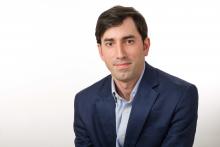Sleep No More: Capitalism and Insomnia
In the first episode of season three of The Kominsky Method (2021), there is a funeral service for Michael Douglas’ character’s lifelong friend Norman Newlander (played by Alan Arkin). By far the most inconsolable mourner to give a eulogy is Newlander’s personal assistant of 22 years who, amid a hyperbolical outpouring of grief, literally cannot bring herself to let go of the casket. It is a humorous scene, to be sure, but there is something else going on here that is characteristic of employer-employee relations in this era of neoliberal capitalism. “Making him happy made me happy,” she exclaims, “his welfare was my first thought in the morning, and my last thought before I went to sleep.” That isn’t sweet – it is pathological.
Employee happiness is becoming increasingly conditional on, or even equated with, the boss’ happiness. As Frédéric Lordon observes in his book, Willing Slaves of Capital (2014), “employees used to surrender to the master desire with a heavy heart…they had other things on their minds…ideally the present-day enterprise wants subjects who strive of their own accord according to its norms.” In a word, the employee is increasingly expected to internalize and identify with the desire of the master.
Neoliberalism wants to convince us that life itself is simply reducible to working life and that work will provide life with “its best opportunities for joy.” What we are witnessing then is capitalism’s gradual colonization of every last corner of our lives – so that we are either working or consuming during all of our waking hours. The only time we are free from this dual injunction to be constantly either working or consuming is when we are sleeping – but even this last refuge from the demands of neoliberalism is under assault: it is not without reason that sleep has been called the last frontier of capitalism.
People are certainly sleeping less in many countries, including the US. In 2004, researchers noticed a slight decrease in sleep time; and by 2017, nearly 33 percent, a full one-third of American working adults reported sleeping six or fewer hours per night – that is up from less than 28.5 percent in 2008-2009. According to the Sleep Foundation, nearly “half of Americans say they feel sleepy during the day between three and seven days per week.” Over 35 percent of all adults in the United States now report sleeping on average less than seven hours per night.
Insomnia is also on the rise, according to the American Journal of Managed Care, which reports that, “[t]he incidence of insomnia appears to be increasing in the United States. Based on National Health Interview Survey data, the unadjusted prevalence of insomnia or trouble sleeping increased by 8% over a decade, from 17.5% (37.5 million adults) in 2002 to 19.2% (46.2 million adults) in 2012.”
This phenomenon is typically blamed on technology, especially smartphones and other screen-based technologies. But what we are witnessing is as much, or indeed more, a function of neoliberalism rather than simply technology – it is a function of capitalism’s capture, colonization and conditioning of our inner lives; and ultimately the erasure of any form of interiority which presents an obstacle to the imperatives of neoliberalism; what the late Mark Fisher refers to as our “inability to construct a coherent self anymore in the face of this constant input, instantaneity, the kind of schizoid subjectivity… which has no halo of private protection anymore.”
At the same time, employers still rely on the traditional methods of increasing pressure on employees to improve performance and increase production. “Realistically, there are probably a bunch of people at the company who shouldn’t be here,” Mark Zuckerberg recently said at a weekly employee Q&A session. In becoming more hostile towards employees, Zuckerberg is ‘turning up the heat” on performance management to identify and remove staffers who are ‘negative’ for the company and unable to meet more aggressive targets.
One kind of critical response to Zuckerberg’s hardline, ‘shape up or ship out,’ approach recently appeared in an article entitled, “Mark Zuckerberg Just Made a Huge Mistake. It Could Destroy Meta and Facebook.” The author, Justin Bariso, takes Meta’s CEO to task for disregarding research which has demonstrated conclusively that “employees thrive in an environment that promotes psychological safety, where people feel safe to take risks and make mistakes.” Zuckerberg is also wrong, the author claims, for taking a ruthless approach to prioritization, while at the same time hardening management and increasing the surveillance of employees.
We might agree that the condemnation of Zuckerberg’s actions is fully justified, while disagreeing about what precisely makes his actions contemptible. For Bariso, Zuckerberg is guilty of a miscalculation: the hardboiled, toughened approach is not the optimal way to improve employee performance; undermining the confidence and morale of employees is in fact counterproductive and ultimately bad for business, and therefore bad for the bottom line. It is worth noting that if it happened to turn out that treating workers harshly actually improved profitability, then Bariso’s critique of Zuckerberg would lose all force.
One might easily assume that under Zuckerberg’s model of boss-employee relations, the boss’ feeling of dominating and the employee’s feeling of being dominated will be greater than under the conditions Bariso advocates – and that, therefore, under Bariso’s model, domination will indeed be less. If we drew this conclusion however, we would risk overlooking the crucial fact that keeping the dominated happy so that they no longer recognize their domination is “one of the oldest and most effective ruses of the art of ruling,” as Lordon observes.
Zuckerberg’s approach simply serves to underscore the brutality and ‘symbolic violence’ that is endemic to the boss-employee relationship in capitalist (and therefore hierarchically organized) firms. As Lordon observes: “[t]he constant threats of relocation… and, ultimately loss of employment merely exploit the primal affect of the employment relation… fear of losing the conditions necessary for the reproduction of material life.” What Zuckerberg has done is raise this affect (fear) to a higher level of intensity, which enables him to “extract from employees – through fear – a supplement of subjection and productive mobilization…”
There is nothing unusual about what Zuckerberg is doing; indeed, it is typical of companies under conditions of neoliberalism, and continuous with the violation of workers’ rights which has reached record highs, according to the International Trade Union Confederation’s 2022 Global Rights Index. As Fisher remarked: “We are required to hustle and market ourselves even when we have ostensibly permanent jobs. This forms the background condition of our lives under neoliberalism.”
We may also point out the “fantasy of liquidity” implicit in Zuckerberg’s ultimatum to employees that they can either ramp-up performance or face demotion (humiliation) and dismissal. This fantasy is nothing other than the neoliberal desire for the liquefaction of labor: let the workforce be made into “something fluid, reversible, and as easily adjustable as the components of a portfolio of financial assets, with the inevitable effect of creating a world of extreme uncertainty for enlistees.” Flexible labor and the erosion of employment conditions incentivized by neoliberalism has had a deleterious effect on workers’ mental health. Unsurprisingly, numerous studies have shown that employment precarity is correlated with troubled sleep and insomnia, increasing the odds of sleep disturbance by as much as 47 percent, according to a 2018 study.
In his book 24/7: Late Capitalism and the Ends of Sleep (2014), the philosopher Jonathan Crary observes that, “[t]he huge portion of our lives that we spend asleep, freed from a morass of simulated needs, subsists as one of the great human affronts to the voraciousness of contemporary capitalism… it confounds any strategies to exploit or reshape it. The stunning, inconceivable reality is that nothing of value can be extracted from it.” We need to remember that sleep is not simply necessary for us to resume work and maintain our sanity: it is one of the crucial and last remaining bastions against capitalism’s unchecked hegemony. Indeed, perhaps the greatest tragedy of all is that we are gradually and fatally losing the ability to dream of any alternative to the nightmare of neoliberalism.
Sam Ben-Meir is a professor of philosophy and world religions at Mercy College in New York City.

















